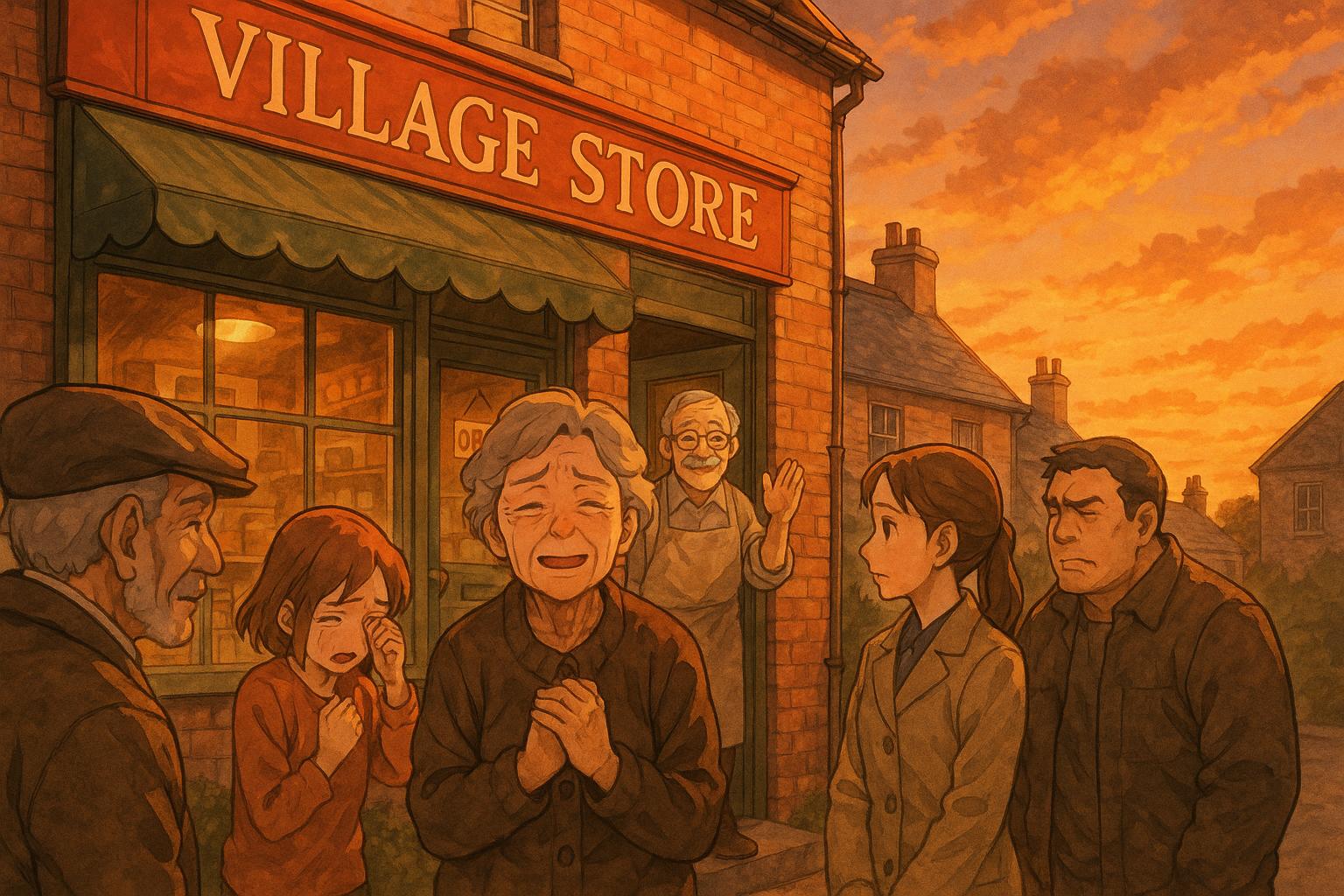Shoppers in the Cumbrian village of Staveley have expressed their heartbreak after the announcement of the impending closure of a cherished local institution, Original Village Shop, which has been part of the community for over two decades. Set to close its doors for the final time on July 12, the shop’s closure is a poignant reminder of the challenges facing many retailers across the UK. Staff members at the store shared their distress on social media, urging customers to be compassionate during this difficult transition, highlighting their deep-rooted connection to both the shop and its patrons.
The closure of the Staveley store forms part of a wider trend in the retail sector, where more than a dozen stores under the Original Factory Shop brand have faced shutdowns this year. This is attributed to a significant restructuring initiative led by its owner, Modella Capital, which has involved negotiating rents at 88 locations. The rising costs of doing business, amplified by increased rent, energy bills, and changes in employer National Insurance contributions, have stricken a heavy blow to many retailers. The plight of Original Village Shop mirrors that of numerous other popular retailers, with high-profile chains such as Boots, Marks & Spencer, and Argos also announcing substantial closures this year.
In an environment where the retail landscape is continuously evolving, the type of establishments appearing on British high streets is undergoing a significant shift. Since 2010, reports have suggested that traditional shops—especially banks and clothing retailers—are rapidly being replaced by service-oriented businesses such as nail salons and takeaways, particularly noticeable in northern towns. This transformation can be linked to the growth of e-commerce and online banking, which have rendered many physical stores less viable.
According to industry experts, local communities are feeling the impact of these changes acutely. A surge in leisure-based businesses is now seen in town centres, suggesting a playful shift away from traditional retail. While some retailers grapple with closures, others are finding success amidst these challenges. For instance, Danish retailer Søstrene Grene is set to accelerate its expansion across the UK, aiming for 100 stores by 2027, demonstrating that not all brands are faltering under the same pressures.
Compounding the situation is the state of the banking sector in the UK, with significant branch closures having occurred since 2015. These closures have drastically limited access to financial services, particularly in rural communities, leading to growing calls for the establishment of 'banking hubs' to fill the gaps left by traditional branch closures. The Labour Party has pledged to create new such hubs if it seizes power in the next general election, aiming to bolster community access to essential banking services.
As beloved local shops close or face substantial downsizing, the question of sustainability and community engagement looms large over the future of the British high street. The story of the Original Village Shop is not merely a tale of loss for Staveley, but one that encapsulates broader economic realities affecting retail workers, consumers, and communities across the nation. The atmosphere of nostalgia and heartfelt tributes online illustrates the deep connections formed within local economies, underscoring the challenges that lie ahead as the retail landscape continues to evolve.
Reference Map
- Paragraphs 1-2: Source [1]
- Paragraphs 3-4: Source [2]
- Paragraph 5: Source [3]
- Paragraph 6: Source [4]
- Paragraph 7: Sources [5], [6], [7]
Source: Noah Wire Services
